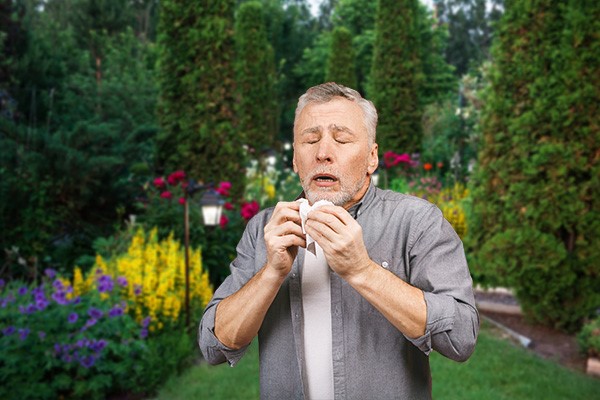It’s that time of the year again when everything is beautiful and blooming—Meanwhile, you’re itchy and irritated. Read on to learn the most common allergens to avoid, as well as 5 tips on how you can help alleviate those annoying, annual allergies.
Common Allergies: Pollen, Dog Hair, and More
According to the NHS, some of the most common allergens include the following:
- grass and tree pollen
- dust mites
- animal dander, tiny flakes of skin or hair
- food – particularly nuts, fruit, shellfish, eggs and cows' milk
- insect bites and stings
- medicines – such as ibuprofen, aspirin, and certain antibiotics
- latex
- mould – breathed in through small particles released into the air
- household chemicals – including those in detergents and hair dyes
5 Tips on How to Get Rid of Allergies Fast
1. Always Shower and Change Clothes After Being Outside
Being outside for even short amounts of time can expose you to a variety of allergens—Especially on dry, windy days when substances such as pollen are blown through the air without much moisture to combat the allergens. These allergens easily stick to the fibres of your clothes, as well as your hair. For this reason, it is important for people that are sensitive to allergens to always shower, as well as change and wash their clothes immediately after being outside. Another tip is to try and take showers at night, rather than in the morning. This way, you will wash away all the built-up allergens from the day so that they don’t transfer to your sheets, and you can start the day fresh and allergen-free.
2. Try to Avoid Doing Lawn Work That Can Stir Up Allergies
 Everyone likes a tidy lawn, but it should come as no surprise that lawn work can stir up allergies for those sensitive to pollen, plants, or grass. If you are particularly sensitive to outdoor allergens, now is the perfect excuse to get someone else less sensitive to do your lawn work for you. If you must do your own lawn work, try to pick a day that is not windy or dry and a time when the pollen count is low (typically in the late afternoon and evening). Wearing a mask is also a useful tip for keeping allergens away from your nose and mouth.
Everyone likes a tidy lawn, but it should come as no surprise that lawn work can stir up allergies for those sensitive to pollen, plants, or grass. If you are particularly sensitive to outdoor allergens, now is the perfect excuse to get someone else less sensitive to do your lawn work for you. If you must do your own lawn work, try to pick a day that is not windy or dry and a time when the pollen count is low (typically in the late afternoon and evening). Wearing a mask is also a useful tip for keeping allergens away from your nose and mouth.
3. Keep Indoor Air Clean and Dry with a Dehumidifier
Although outdoor allergens during the spring and summer could be the main culprit of your allergic reactions, it is important to make sure that your home is an allergen-free zone because dust mites and mould could be triggering your allergies as well. Keeping a dehumidifier in your home helps remove moisture from the air that prevents the growth of mould or the thriving of dust mites. If you have pets, it is also important to regularly vacuum your home and wash your clothes, sheets, and blankets, as pet dander can also aggravate allergies. Taking extra steps to clean, dust, vacuum, and wash the items in your home regularly can significantly alleviate even the most stubborn allergies.
4. Keep Windows and Doors Shut to Keep Allergens Out
While it may be tempting to open windows and doors to let in some fresh air once in a while, you may also be letting in some more unwelcome guests such as grass or pollen that can trigger allergies. During the spring and summer, or on days when the pollen count is particularly high, try to keep your windows and doors shut to avoid letting allergens into your home.
5. Take Allergy Medication—Runny Nose and Sneezing Remedies
There are many allergy medications out there to try that can help relieve some of your symptoms. With options such as decongestants, antihistamines, nasal sprays, and a choice between drowsy and non-drowsy, it is easy to find a medication that fits your needs. There are also other home remedies that you can try that are supposed to help with a runny nose and sneezing. Some of these recommended remedies include blowing your nose, drinking hot tea with honey, using a humidifier, taking a hot shower, using a warm compress, and doing a facial steam.
Go See a Doctor and Get an Allergy Test Done if Allergy Symptoms Persist
If after trying all of these tips your allergy symptoms persist, there may be a more serious issue that should be addressed by a doctor. In order to figure out what specific allergens are causing a reaction, your doctor can perform an allergy test on you. Allergy tests can help you better understand what allergens to avoid and make a strategy on how to avoid them in the future.
